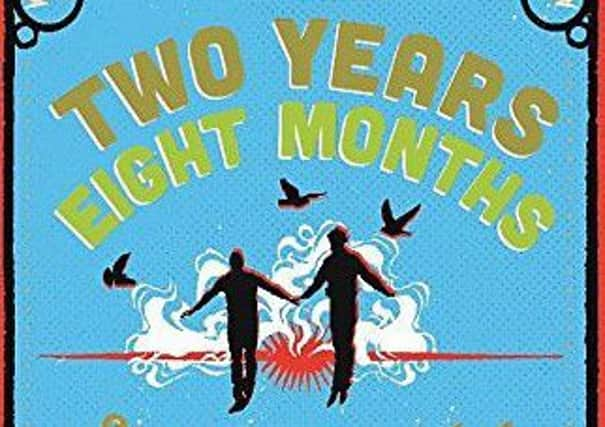Book review: Two Years Eight Months and Twenty-Eight Nights


Two Years Eight Months and Twenty-Eight Nights
By Salman Rushdie
Jonathan Cape, 286pp, £18.99
The title, once you do the sums, gives the clue: One Thousand and One Nights, Arabian Nights, even though the setting is, mostly, New York City, sort of. This is Salman Rushdie in playful vein, the Rushdie who, as a boy, was entranced by Tolkien. Those who like this sort of thing will love it, and even readers who are sceptical of Fancy or quickly bored by it may still admire Rushdie’s easy-going storyteller. For this of course is the main point about Rushdie; he loves telling stories.
This one begins in Seville in 1195 where a famous Muslim scholar, Ibn Rushd, is discredited and disgraced on account of his liberal ideas. Ibn Rushd is a historical figure from whom, apparently, Rushdie’s father liked to think the Rushdie family of Bombay were descended. In the novel however the woman the philosopher marries is not human but a jinn. The first sentence of the novel reads: “Very little is known, though much has been written, about the true nature of the jinn, the creatures made of smokeless fire.” Quite so. However, no matter what is disputed, it seems the female jinn, “the jinnias or jiniri”, are remarkably fecund, and Ibn Rushd and his jinn wife or mistress soon have an extraordinary, number of progeny who over the centuries spread widely, though, for the most part, remain ignorant of their heredity.
Advertisement
Hide AdSo it happens that sometime in what for us is the near future a tremendous storm hits New York City with remarkable consequences, especially for the descendants of the jinn. So, for instance, a gardener finds that his feet no longer touch the ground leaving no mark on it as he makes his way about the city where “the storm had evidently messed with the psyches of motor vehicles as well as human beings”.
“There had been fires, and buildings our ancestors had known all their lives stood charred among them, staring into the pitiless brightness through the hollow sockets of their blackened eyes, like the undead on TV”. You may find that this simile says nothing, but there it is. Rushdie has taken us into a magical world where anything can happen, and, as it happens, almost anything you might imagine, does.
All this is well enough and in its way entertaining, for Rushdie writes with a happy exuberance, and his fancy is almost as fecund as a female jinn’s womb reputedly was. It is very easy, and quite agreeable, to go along with the flow. Parents, alarmed by events they can’t begin to understand, take to leaving lights on in their children’s bedrooms and lock the windows because “some of the jinns were child-snatchers and no one could tell what became of the children they seized. Moreover, “it was wise not to bathe in the dark because the jinn were attracted to darkness and moisture.”
You get the point. Rushdie is enjoying himself no end, playing with ideas and fanciful notions. You are likely to go along happily with it, and be carried along like a cork on a fast-flowing stream. The underlying notion is that the jinns are playing their part in a war – even an epic war – between darkness and light, but everything is so frothy that this idea seems no more than a piece of mildly amusing whimsy.
If you feel in a sternly critical mood, you may say that the whole thing is a farrago of nonsense. Perhaps it is, but if so, it’s the kind of nonsense for which there is undoubtedly a market. And it is relieved, one may say, by Rushdie’s self-awareness. When he writes: “That was not how this part of the story was supposed to go. He was supposed to come home from Fairyland with superpowers and rescue Yasmeen and Sister”, you know that his tongue is in his cheek. After all, this story – this kind of story – can go wherever he chooses. He alone is the master of its logic. This has its own charm.
Nevertheless, after the froth and frenzy, the novel does have a serious message. In the epilogue, Rushdie looks to the possibility of a better and kinder time: “A gardener’s world, in which we all must cultivate our garden, understanding that to do so is not a defeat, as it was for Voltaire’s poor Candide, but the victory of our better natures over the darkness within…” To which one may say, “Amen… if only.”